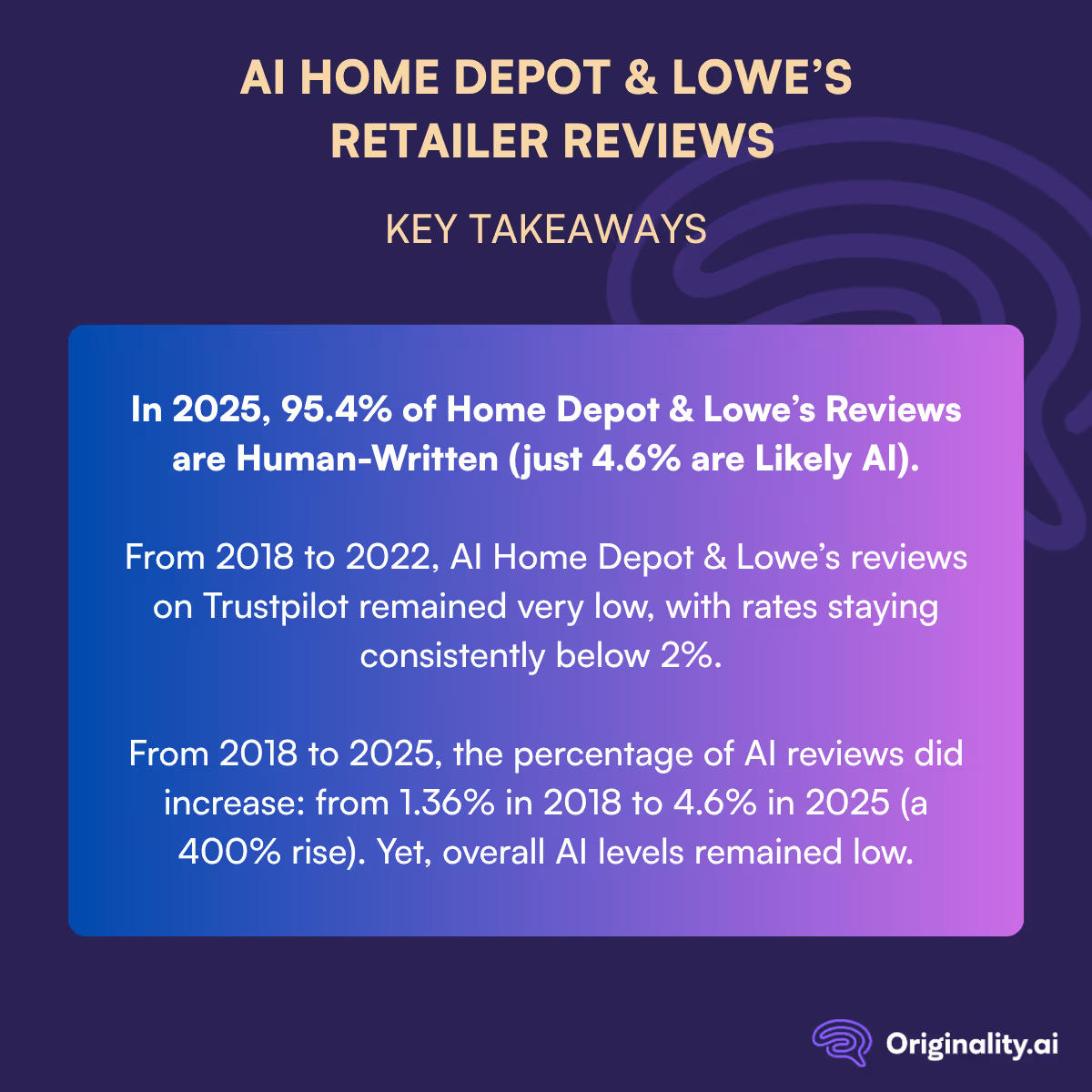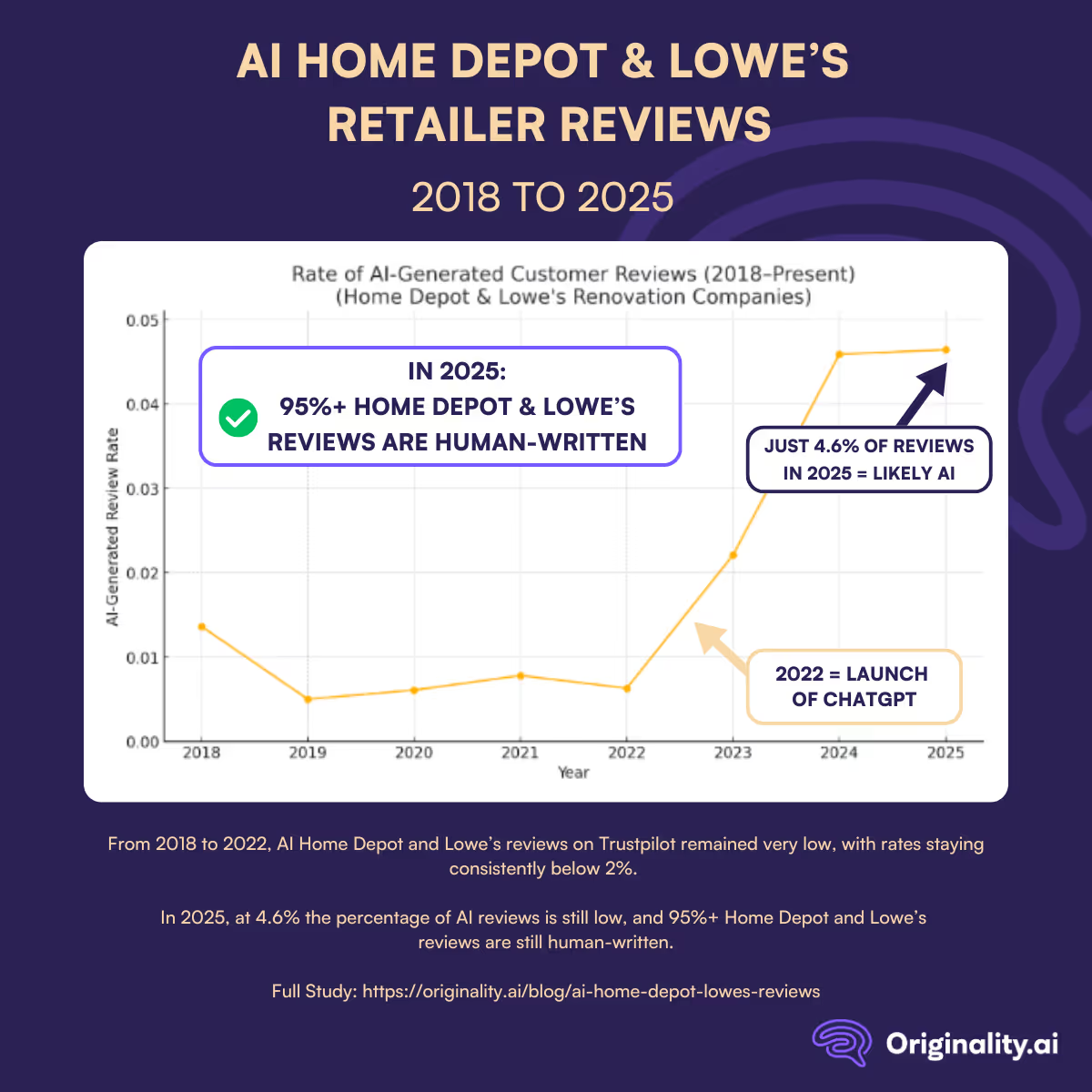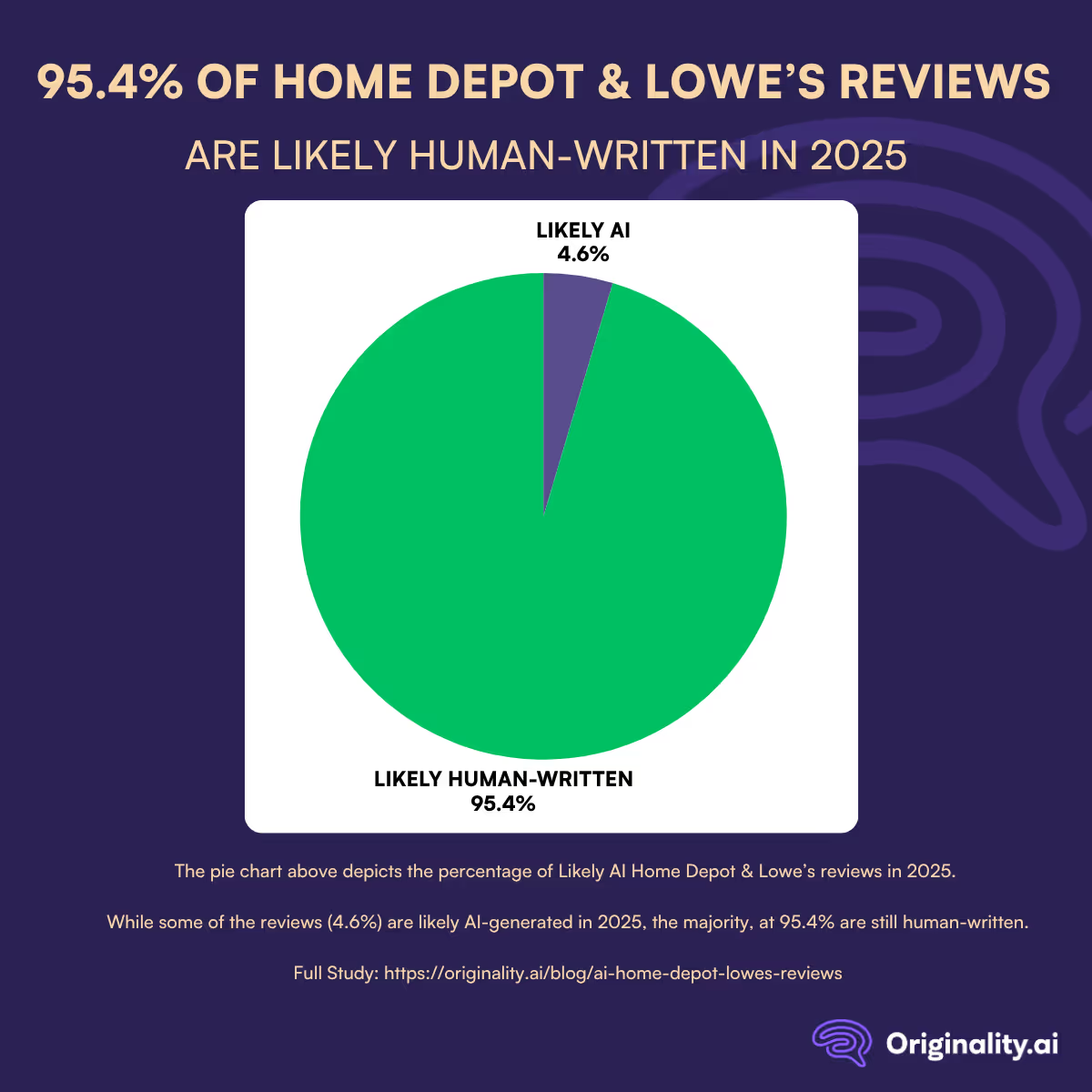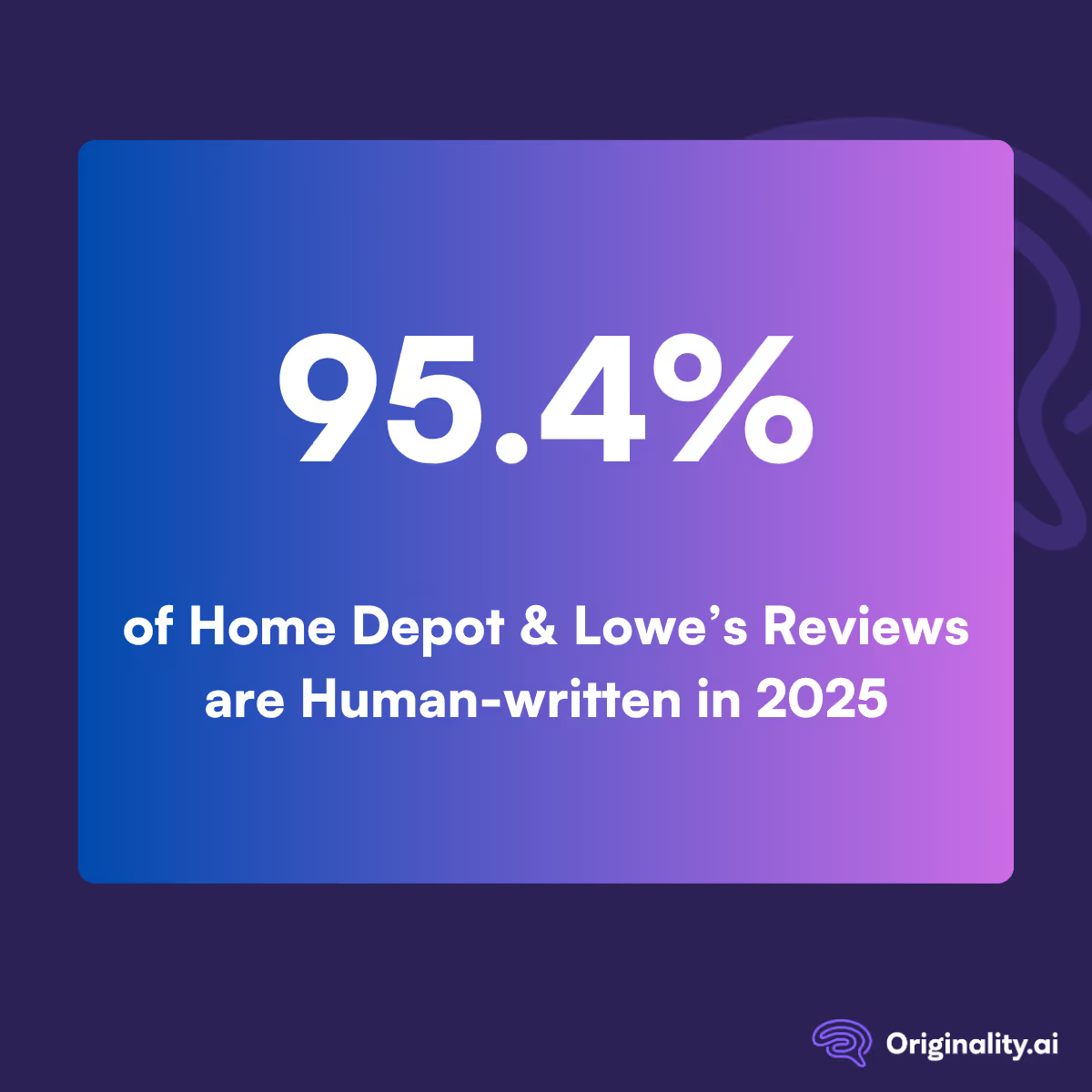Customer reviews are playing an increasingly critical role in shaping consumer decisions in e-commerce and retail.
For retailers operating in the renovation and home improvement sector, such as Home Depot and Lowe’s, online reviews serve not only as testimonials but also as powerful tools for attracting new clients and establishing trust.
However, the increasing accessibility of generative artificial intelligence (AI) tools (like ChatGPT) has begun to blur the line between authentic customer feedback and synthetic content.
As AI-generated text becomes more sophisticated and widespread, it raises important questions about the authenticity and reliability of online reviews in consumer-facing industries.
This study investigates the impact of AI in reviews for Home Depot and Lowe’s (two of the largest home improvement retailers in North America) on Trustpilot from 2018 to 2025.
This study examines the emergence and growth of AI content in publicly available customer feedback (collected from Trustpilot) for Home Depot and Lowe’s (2018 to 2025).
This analysis focuses on these key questions:
This suggests that customers are continuing to contribute human-written reviews about Home Depot and Lowe’s or that steps are being taken to moderate AI content, such as through AI detection.
Note: The levels of AI content found in this study were in line with false positive rates in AI detection. At Originality.ai, our Lite 1.0.1 model has a 0.5% false positive rate, and our Turbo model has an under 3% false positive rate. Find out which AI detection model is best for your use case and read more about AI detection accuracy.


The analysis of customer reviews from renovation retailers, specifically Home Depot and Lowe’s, reveals consistently low levels of AI-generated content in customer reviews.
From 2018 to 2022, AI Home Depot and Lowe’s reviews on Trustpilot remained very low, with rates staying consistently below 2%.
By 2025, the AI reviews for Home Depot and Lowe’s have increased to 4.6%. Comparatively, from 2018 (when 1.36% of reviews were Likely AI) to 2025, this represents an increase of more than 400%.
However, in 2025, at 4.6% the percentage of AI reviews is still low, and 95%+ Home Depot and Lowe’s reviews are still human-written.

The findings from this study indicate that while AI-generated content is increasing in Home Depot and Lowe’s reviews, it’s lower than other platforms we’ve studied, such as Snapdeal (22.86% Likely AI in 2024) and Daraz (8.67% Likely AI in 2024).

Understanding the extent to which AI-generated reviews are present in this industry is essential for both consumers and businesses.
For consumers, the presence of fabricated or artificially polished feedback can skew perceptions and lead to misguided purchasing decisions.
For businesses, the rise of synthetic reviews may distort competitive benchmarks and challenge the integrity of customer engagement metrics.
So, it’s great to see that there is still a high percentage of human-written content in both Home Depot and Lowe’s reviews.
This suggests that customers are continuing to contribute human-written reviews about the platforms or that steps are being implemented to moderate AI content, such as through AI detection.
The findings of this study indicate that overall, Home Depot and Lowe’s reviews are still primarily human-written, which is great news.
For retailers and brands who are looking to tackle an influx of AI-generated reviews, moderation tools such as the most accurate Originality.ai AI Checker can help maintain transparency.
Do you have concerns over whether a post or review you’re reading might be AI-generated? Use the Originality.ai AI detector to find out.
Read more about the impact of AI:
Data Collection
This study analyzed customer reviews from Trustpilot Canada for Home Depot and Lowe’s to assess the prevalence of AI-generated feedback in the renovation sector. A Python web scraper using requests and BeautifulSoup extracted review text and timestamps, saving them to a CSV file. The script included polite scraping practices (e.g., one-second delays) and could resume from the last saved page.
AI Detection Procedure
Collected reviews (50+ words) were scanned using the Originality.ai API to detect AI-generated content. An automated Python script handled API calls, retries, and saved results (including confidence scores and AI classification) to the dataset. Progress was saved every 500 rows.
The final dataset included metadata such as company, date, and AI likelihood, supporting year-over-year and cross-company analysis of AI-generated reviews.

MoltBook may be making waves in the media… but these viral agent posts are highly concerning. Originality.ai’s study with our proprietary fact-checking software found that Moltbook produces 3 X more harmful factual errors than Reddit.